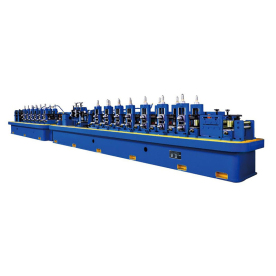[Industrial-Grade HSS Blade]Choosing the Right Industrial-Grade HSS Blade for Optimal Performance in Metal Cutting Applications
News 2024-9-22
When it comes to metal cutting applications, the choice of tools can significantly affect the quality of work and overall efficiency. One critical component of this process is the Industrial-Grade HSS (High-Speed Steel) blade. Known for their excellent durability and performance, HSS blades are engineered to withstand high temperatures and pressures, making them ideal for demanding industrial environments.
Understanding HSS Blades
HSS blades are made from a variety of alloy materials that contain high amounts of tungsten, molybdenum, and chromium. These elements work together to enhance the hardness, wear resistance, and heat resistance of the blades. Unlike conventional steel, high-speed steel can maintain its cutting edge at high temperatures, allowing for smoother and faster cutting processes without chipping or breaking under stress.
Key Benefits of Industrial-Grade HSS Blades

Choosing the Right Industrial-Grade HSS Blade for Optimal Performance in Metal Cutting Applications

Choosing the Right Industrial-Grade HSS Blade for Optimal Performance in Metal Cutting Applications
3. **Efficiency**: Because of their ability to cut through materials at high speeds, HSS blades increase the overall productivity of machining operations. They offer a balance of speed and sharpness, ensuring that workers can complete tasks more quickly and with greater precision.
4. **Cost-Effectiveness**: Although the initial investment in industrial-grade HSS blades may be higher than that of standard blades, their longevity and efficiency translate to lower overall costs over time. Reduced maintenance and replacement costs, paired with improved cutting performance, contribute to a more favorable return on investment.
Selecting the Right HSS Blade
Choosing the right industrial-grade HSS blade involves careful consideration of various factors. Here are some key points to keep in mind:
1. **Material Type**: Different materials require different cutting techniques and blade types. Ensure you select a blade that is specifically designed for the material you will be cutting. For instance, blades designed for stainless steel will differ from those meant for aluminum or other alloys.
2. **Blade Geometry**: The design of the blade—such as the pitch, tooth shape, and gullet size—can influence its performance. Fine-toothed blades are often better for making precise cuts, while coarser blades are ideal for faster cuts on thicker materials.
3. **Coating**: Many industrial-grade HSS blades come with a coating to further enhance their performance. Coatings such as titanium nitride (TiN) or cobalt can improve hardness and reduce friction, which can increase cutting efficiency and blade lifespan.
4. **RPM and Power Requirements**: Ensure that your cutting machine can support the RPM and power requirements of the HSS blade you choose. Using a blade that is incompatible with your machine can result in poor performance and potentially damage the equipment.
Maintaining Industrial-Grade HSS Blades
To maximize the lifespan and functionality of HSS blades, proper maintenance is essential. Here are some maintenance tips:
- **Regular Inspection**: Periodically inspect blades for signs of wear, damage, or dullness. Early detection can prevent further damage and maintain cutting efficiency.
- **Sharpening**: HSS blades can be sharpened using specialized sharpening tools designed for high-speed steel. Keeping the blade sharp can significantly extend its working life.
- **Cleaning**: After use, clean the blades to remove any built-up material or debris. This can prevent corrosion and other damage that can shorten the blade's lifespan.

Choosing the Right Industrial-Grade HSS Blade for Optimal Performance in Metal Cutting Applications
The industrial-grade HSS blade is a critical tool in the metalworking industry, offering a combination of durability, efficiency, and versatility that is hard to match. By understanding the characteristics of HSS blades and selecting the right one for your specific application, you can significantly enhance productivity while ensuring high-quality results. Regular maintenance further contributes to extended service life, making HSS blades not only a smart choice but a necessary one for any industrial setting. Investing in quality HSS blades is investing in the long-term efficiency and effectiveness of your operation.
